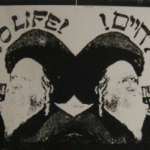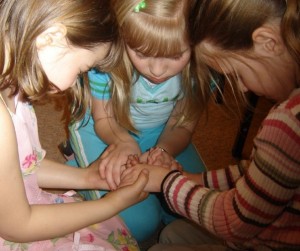You Spend It On Other People.
 ;What is the secret of happiness? Religion has explored this question for millennia. So have philosophy and literature. Science recently entered the picture. Since the 1990s, the field of positive psychologyhas focused on individual well-being and satisfaction.What do happy people share in common? What qualities do they display? Does one quality matter more than others?
;What is the secret of happiness? Religion has explored this question for millennia. So have philosophy and literature. Science recently entered the picture. Since the 1990s, the field of positive psychologyhas focused on individual well-being and satisfaction.What do happy people share in common? What qualities do they display? Does one quality matter more than others?
Pondering these questions, I’ve seen a pattern emerge: The discoveries of positive psychology point to the qualities that Jewish wisdom associates with a righteous person. In other words, the qualites that make for righteousness also make for happiness. What are they?
1. Gratitude: When we feel grateful for what we have and who we are, we feel greater satisfaction with our lives. We are more open to engaging experiences and maintaining the relationships we enjoy, since we are grateful for them. We are less envious of others because we find satisfaction in what we have.
2. Generosity: For a couple of years, a recurring commercial for a financial company proclaimed the motto, “It’s my money, and I need it now!” This attitude makes for profound unhappiness.
Consider this question: Do you ever get more exciting about giving rather than receiving a present? It’s about the relationship. Giving deepens relationships in a way that makes us happier in the long run.
Point in fact: As a rabbi I’ve noticed that our Bar and Bat Mitzvah students (13 years old) derive enormous satisfaction from the community service we ask them to do. While getting presents is great, helping others creates a long-lasting satisfaction.
3. Prayer: Prayer is not about asking for things. We pray to be inspired. We pray to remind ourselves to live with purpose. Prayer is like opening windshapes on a sunny day. We see the world in a different light.
4. Community: In the English language, life is a singular noun. The plural form is “lives.” Yet, in Hebrew, Chaim means both life (singular) and lives (plural). In fact, Hebrew has no word that simply means “life” in the singular.
life (singular) and lives (plural). In fact, Hebrew has no word that simply means “life” in the singular.
That grammatical feature illustrates a deeper truth. Life is best lived in the plural. The amount of happiness we find on the journey of life depends more on our fellow travels than our individual destination.
5. Hope: Life is not easy. Disappointments and difficulties confront us all. We could meet such challenges with stoicism. We could drown them out with constant stimulation or mindless pleasure. Or we can take a third way.
The third way is one of hope. Hope combines vision with action. It allows to imagine a world different than our own. Even if we love where we are now, vision and possibility add to our to satisfaction and help find a way to pass on a better world to the next generation.
By Evan Moffic,

